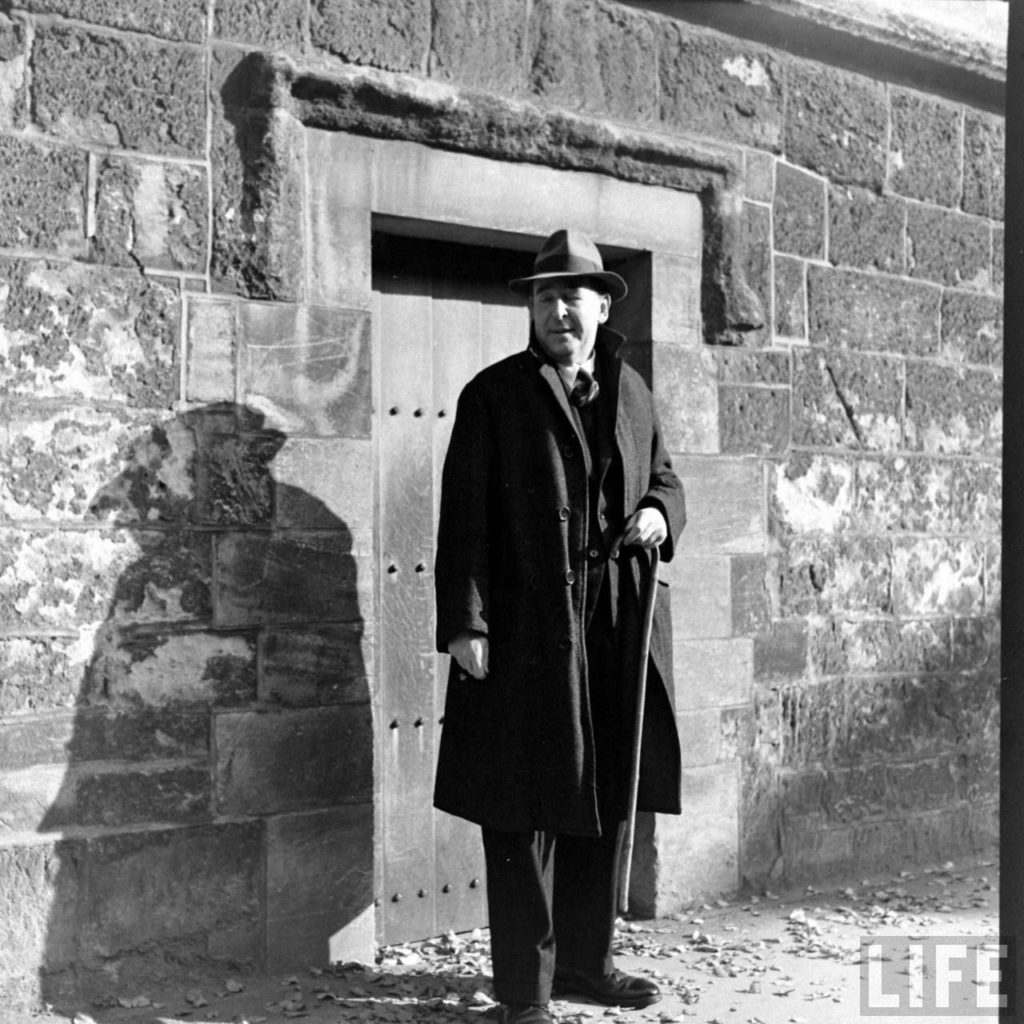
C. S. Lewis gave the Memorial Lecture at King’s College, the University of London, in 1944. It has come down to us in the form of one of his famous essays, “The Inner Ring.” It’s one of my favorites, as it identifies the rather slippery slope from being part of a group to the insatiable desire to belong to the group so that you can feel like you are one of the elite, one of the few chosen who are “in the know.”
As I sat down to write this blog post, my intention was to go into Lewis’s argument for why that is a dangerous attitude of the heart. I have, like all good academics, key comments in the essay highlighted for use in posts such as this. Yet as I surveyed the essay, I was struck—I think for the first time—by a portion that I hadn’t highlighted. This time, though, it stood out to me, even though it wasn’t the essence of the thesis Lewis was advancing.
After his opening sentence introducing a quote from Tolstoy’s War and Peace, the next three paragraphs lay the foundation for why Lewis is even there addressing these students. As a university professor myself, I believe that’s why this section leaped off the page this morning.
“When you invite a middle-aged moralist to address you, I suppose I must conclude, however unlikely the conclusion seems, that you have a taste for middle-aged moralising. I shall do my best to gratify it,” Lewis began. He is speaking, of course, while WWII is still going on, and his words are for a generation that will live in a post-war society.
I shall in fact, give you advice about the world in which you are going to live. I do not mean by this that I am going to talk on what are called current affairs. You probably know quite as much about them as I do. I am not going to tell you—except in a form so general that you will hardly recognise it—what part you ought to play in post-war reconstruction.
It’s the task of university professors, especially Christian professors, to try to guide the thinking of their students—not as some exalted authority who speaks from on high who should never be contradicted, but as someone who has the best interests of the students at heart. That’s the spirit I see here in Lewis as he takes this opportunity to tell them what they should know.

What part will these students play in post-war reconstruction? Well, first, Lewis brings them down from any utopian vision they may be embracing when he says, “It is not, in fact, very likely that any of you will be able, in the next ten years, to make any direct contribution to the peace or prosperity of Europe.” Why on earth not? It has to do with the pattern of life itself: “You will be busy finding jobs, getting married, acquiring facts.”
Ah, yes, all of those mundane things that one does as one sets out on the quest to change the world. “I am going to do something more old-fashioned than you perhaps expected,” Lewis continued. “I am going to give advice. I am going to issue warnings. Advice and warnings about things which are so perennial that no one calls them “‘current affairs.'”
We are awash in current affairs, whether the latest policy proposal from the government, a recent election, or the latest scandal. We are so focused on these sometimes that we forget what really matters. The dangers come from three sources, as clearly outlined in Scripture. That’s where Lewis goes next in the talk:
And of course everyone knows what a middle-aged moralist of my type warns his juniors against. He warns them against the World, the Flesh, and the Devil. But one of this trio will be enough to deal with today. The Devil, I shall leave strictly alone. The association between him and me in the public mind has already gone quite as deep as I wish: in some quarters it has already reached the level of confusion, if not of identification. I begin to realise the truth of the old proverb that he who sups with that formidable host needs a long spoon. As for the Flesh, you must be very abnormal young people if you do not know quite as much about it as I do. But on the World I think I have something to say.
Lewis’s clever allusion to The Screwtape Letters takes care of the Devil’s intrusions into life, and since he is speaking to an audience of young adults, he quickly, yet humorously, tackles the Flesh, which is omnipresent at that time of life. “But on the World I think I have something to say,” he adds. And that becomes the springboard for launching into the dangers of The Inner Ring.
This introduction to his main topic is classic Lewis. He humbly takes his place as a “middle-aged moralist,” thereby letting his audience know that he knows how they might perceive him. He can get past their possible reluctance to listen to such a moralist because they realize he knows where they are coming from. He knows his audience.
Those of us who teach, and who attempt to advise and warn, must know our audience also. We must meet them where they are, and we must show them that we know where they are. We must come to them in humility as a fellow learner. If we have something valuable to share, it needs to emanate from the mistakes, false ideas, and, yes, even the sins we have committed. We need to speak from the heart as to how the Lord has taught us to avoid the dangers of the World, the Flesh, and the Devil.
May we do so in the same spirit that C. S. Lewis exhibited that day in 1944.
